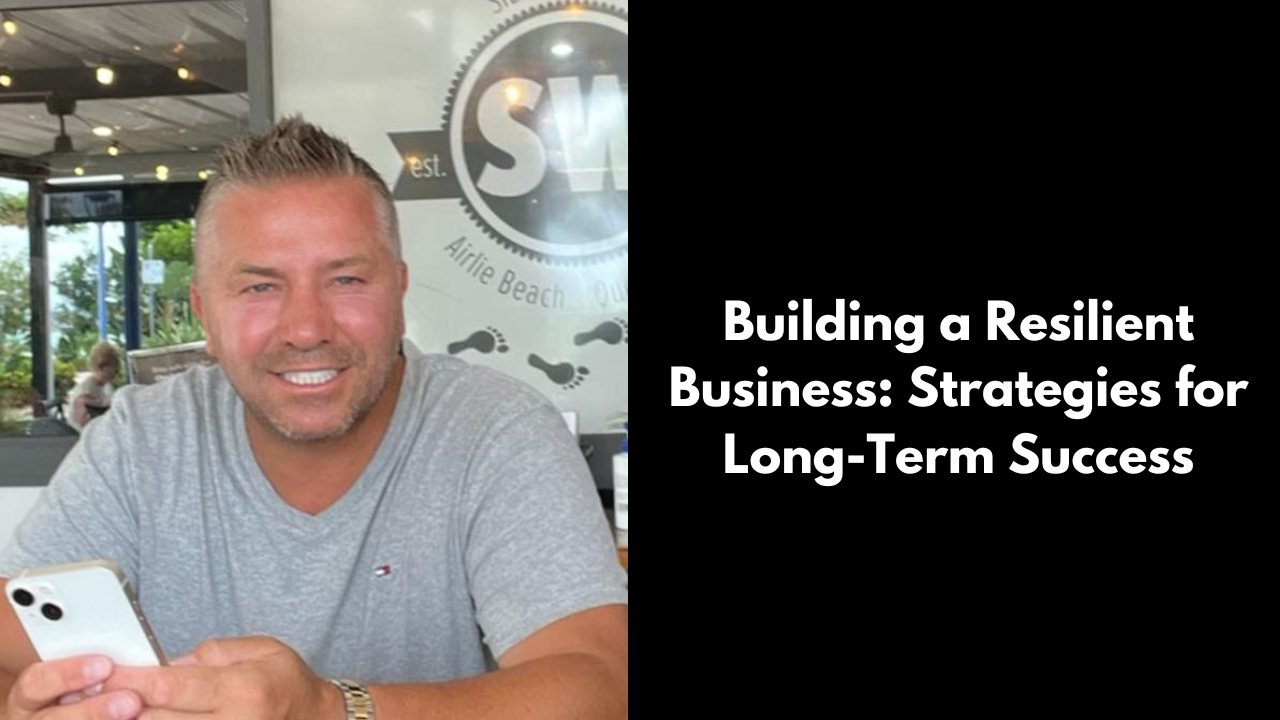In the ever-changing landscape of modern business, resilience has become a critical factor for sustained success. Economic downturns, technological disruptions, and unexpected challenges can impact any business, regardless of its size or industry. David Deicke, an accomplished Australian entrepreneur, has navigated numerous obstacles in his journey to building a successful business empire. This blog delves into strategies for building a resilient business, drawing on insights from David Deicke’s experiences.
Understanding Business Resilience
1. Defining Resilience: Resilience in business refers to the ability to adapt, recover, and thrive in the face of challenges and disruptions. It involves proactive planning, strategic flexibility, and a strong organizational culture. David Deicke defines resilience as the capacity to not just survive adversities but to leverage them as opportunities for growth.
2. The Importance of Resilience: Building resilience is crucial for long-term success. It ensures that a business can withstand economic fluctuations, market changes, and unforeseen crises. David’s businesses have weathered multiple economic downturns and emerged stronger each time, thanks to their resilient foundation.
Strategies for Building Resilience

1. Diversify Revenue Streams: Diversifying revenue streams reduces dependence on a single source of income and spreads risk. Explore new markets, products, or services that complement your existing offerings. David expanded his business from car smash repairs to offering luxury car detailing and customization services, creating multiple revenue streams.
2. Develop a Strong Financial Foundation: Maintaining a healthy cash flow, managing debt, and building reserves are essential for financial resilience. Regular financial audits and prudent budgeting help ensure stability. David emphasizes the importance of financial discipline and strategic investments to safeguard against economic uncertainties.
3. Foster an Adaptive Organizational Culture: An adaptive culture encourages innovation, flexibility, and continuous improvement. Employees should feel empowered to suggest changes and adapt to new circumstances. David’s businesses prioritize a culture of openness, where feedback is valued, and adaptability is encouraged.
4. Invest in Technology and Innovation: Leveraging technology and innovation enhances operational efficiency and creates a competitive edge. Stay updated with the latest technological advancements and integrate them into your business processes. David invested in advanced diagnostic tools and automation technologies to streamline operations and improve service quality.
5. Build Strong Relationships: Strong relationships with customers, suppliers, and stakeholders are vital for resilience. Trust and loyalty can help navigate challenging times and ensure continued support. David maintains close relationships with his clients and suppliers, fostering a network of mutual support.
6. Plan for Contingencies: Developing contingency plans for various scenarios helps prepare for potential disruptions. Regularly reviewing and updating these plans ensures readiness. David’s businesses have detailed contingency plans for operational disruptions, supply chain issues, and financial emergencies.
Case Studies of Resilience in Action
1. Navigating Economic Downturns: During the global financial crisis, David’s businesses faced significant challenges due to reduced consumer spending. By diversifying services, implementing cost-saving measures, and maintaining strong customer relationships, they were able to navigate the downturn successfully and emerge stronger.
2. Adapting to Technological Changes: The rapid advancement of automotive technology posed a challenge for David’s car repair business. By investing in training and new equipment, they adapted to the changes, staying relevant and competitive in the market.
3. Responding to Market Shifts: Shifts in consumer preferences towards eco-friendly products led David to adopt sustainable practices in his business. By using environmentally friendly materials and processes, they attracted a new segment of environmentally conscious customers, boosting their market position.
4. Overcoming Supply Chain Disruptions: Supply chain disruptions due to natural disasters and global events required quick adaptation. David’s businesses built strong relationships with multiple suppliers and developed contingency plans to ensure a steady supply of materials and components.
Building Personal Resilience as a Leader

1. Developing a Growth Mindset: A growth mindset embraces challenges as opportunities for learning and growth. Leaders with a growth mindset inspire their teams to be innovative and resilient. David believes that viewing setbacks as learning experiences has been crucial to his personal and professional growth.
2. Practicing Self-Care: Maintaining physical and mental well-being is essential for resilience. Regular exercise, healthy eating, and mindfulness practices can help manage stress and maintain focus. David incorporates self-care into his routine to stay energized and motivated.
3. Building a Support Network: A strong support network of mentors, peers, and advisors provides valuable guidance and encouragement. David attributes much of his success to the mentorship and support he received from experienced business leaders.
4. Continuous Learning: Staying informed about industry trends, market developments, and new skills is vital for personal resilience. Continuous learning enables leaders to adapt to changes and make informed decisions. David regularly attends industry conferences, reads extensively, and invests in professional development.
Conclusion
Building a resilient business is essential for long-term success in today’s dynamic and unpredictable environment. By diversifying revenue streams, maintaining a strong financial foundation, fostering an adaptive culture, investing in technology and innovation, building strong relationships, and planning for contingencies, businesses can enhance their resilience and thrive in the face of challenges.
David Deicke’s journey exemplifies the power of resilience in achieving sustained business success. His strategies and experiences provide valuable lessons for entrepreneurs and business leaders aiming to build resilient organizations.
Personal resilience as a leader is equally important. Developing a growth mindset, practicing self-care, building a support network, and committing to continuous learning can help leaders navigate their entrepreneurial journey with confidence and determination.
Embrace the principles of resilience, and let them guide you in building a robust and adaptable business that can withstand the test of time and emerge stronger from any adversity.

